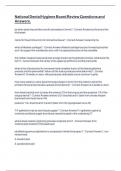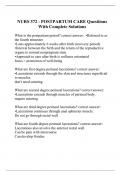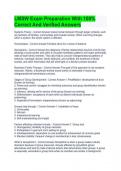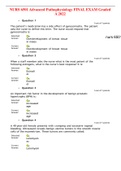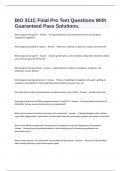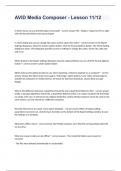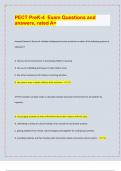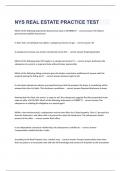Exam (elaborations)
National Dental Hygiene Board Review Questions and Answers.
- Course
- Institution
NationalDentalHygieneBoardReviewQuestionsand Answers. by when does the primitive mouth (stomodeum) forms? - Correct Answer by the end of the third week name for the primitive form of connective tissue? - Correct Answer mesenchyme what is Meckels cartilage? - Correct Answer bilateral cartilagin...
[Show more]
